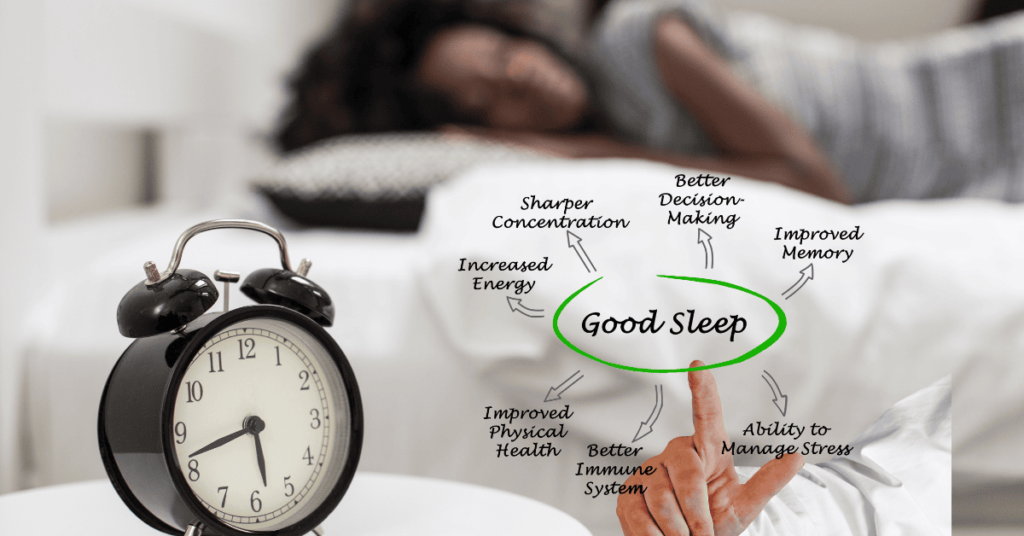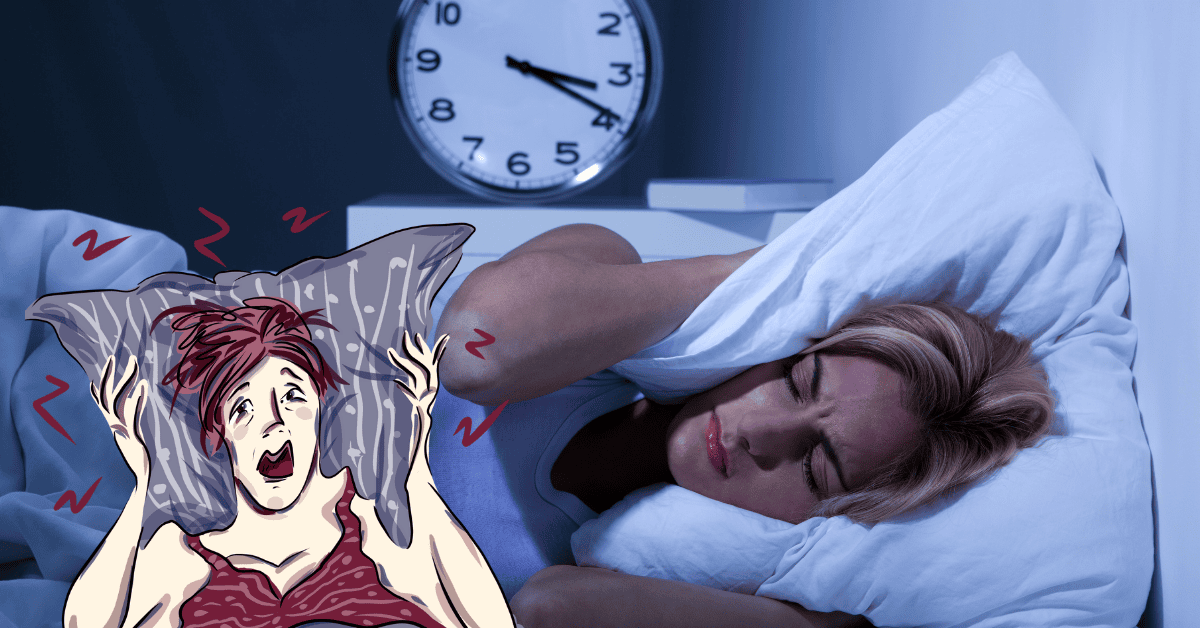Understanding Insomnia
What is Insomnia?
Insomnia is a sleep disorder that affects millions of people worldwide. It is characterized by a persistent difficulty in falling asleep, staying asleep, or waking up too early and being unable to return to sleep.
This condition can lead to significant daytime fatigue, irritability, and challenges with concentration, ultimately impacting overall quality of life. Insomnia can be a short-term issue or develop into a chronic condition, depending on various factors.
Common Causes of Insomnia
Several factors can contribute to insomnia. Stress and anxiety are among the most common culprits, as high levels of mental tension can disrupt sleep patterns. Additionally, medical conditions such as chronic pain, asthma, or gastrointestinal issues may interfere with one’s ability to sleep soundly.
Certain medications can also have side effects that impact sleep quality. Lifestyle choices, particularly the consumption of caffeine or alcohol close to bedtime, can further exacerbate insomnia. Moreover, poor sleep habits—like inconsistent sleep schedules or an uncomfortable sleep environment—can make it difficult to achieve restful sleep.
Symptoms of Insomnia
The symptoms of insomnia can vary from person to person but often include difficulty falling asleep, where individuals may take longer than 30 minutes to drift off. Many people experience frequent awakenings throughout the night, leading to disrupted sleep.
Others may find themselves waking up too early in the morning and unable to return to sleep. Daytime fatigue is a common consequence, leaving individuals feeling tired and irritable, which can affect their productivity and mood. This cycle of poor sleep and daytime dysfunction can lead to increased anxiety and, in some cases, depression.
Natural Remedies for Insomnia
Herbal Supplements for Sleep
Herbal supplements have been used for centuries to promote relaxation and enhance sleep quality. One well-known option is valerian root, prized for its calming effects. It helps reduce the time it takes to fall asleep and improve overall sleep quality, making it a popular choice for insomnia sufferers.
Chamomile is another effective remedy, often enjoyed as a soothing tea before bed. Its mild sedative properties calm the mind and prepare the body for rest, signaling that it’s time to unwind.
Lavender is celebrated for its sleep-inducing qualities. The scent can lower heart rate and blood pressure, creating a tranquil atmosphere for sleep. You can use lavender essential oil in a diffuser, add it to your bath, or place dried lavender sachets under your pillow. Always consult with a healthcare professional before starting new supplements, especially if you are on other medications.
Essential Oils and Aromatherapy
Aromatherapy uses essential oils to enhance well-being, with certain oils particularly effective for promoting restful sleep. Lavender oil is widely recognized for its calming effects, helping to reduce anxiety and promote relaxation. Many find that using a diffuser with lavender oil in their bedroom creates a serene environment.
Bergamot oil also shows promise in reducing anxiety and improving sleep quality. Its uplifting scent calms the mind while enhancing mood. Chamomile essential oil is another great option, providing a soothing aroma that fosters a peaceful atmosphere.
To incorporate these oils into your routine, consider adding a few drops to your pillow or using them in a warm bath. Creating a soothing bedtime ritual with essential oils signals your body that it’s time to relax and prepare for sleep.
Dietary Changes to Promote Sleep
Your diet plays a crucial role in sleep quality, and thoughtful dietary choices can improve insomnia. Foods rich in tryptophan—like turkey, bananas, and dairy—boost serotonin levels, promoting better sleep.
Complex carbohydrates such as whole grains enhance the absorption of tryptophan. A light evening snack combining protein and carbohydrates, like yogurt with fruit, can help support sleep without discomfort.
It’s important to avoid heavy meals, caffeine, and sugary snacks close to bedtime, as these can disrupt sleep patterns. Instead, focus on maintaining a balanced diet throughout the day. Making these dietary changes can create a supportive environment for restful sleep and enhance your overall well-being.
Lifestyle Changes to Combat Insomnia
Sleep Hygiene Practices

Creating healthy sleep habits is important for enhancing the quality of your sleep. Sleep hygiene refers to a set of practices that promote consistent, uninterrupted sleep. One key practice is maintaining a consistent sleep schedule—going to bed and waking up at the same time each day helps regulate your body’s internal clock.
Creating a comfortable sleep environment is also essential. This involves making sure your bedroom is dark, quiet, and at a comfortable temperature. Investing in a good mattress and pillows can significantly enhance comfort, reducing disturbances that may disrupt sleep. Additionally, limit exposure to screens—such as phones, tablets, and TVs—at least an hour before bed.The blue light from screens can disrupt the production of melatonin, the hormone that helps regulate sleep.
Relaxation Techniques
Incorporating relaxation techniques into your nightly routine can help calm the mind and prepare the body for sleep. Techniques such as deep breathing exercises or progressive muscle relaxation can effectively reduce stress and anxiety. These practices encourage mindfulness, helping you focus on the present moment rather than racing thoughts that can keep you awake.
Meditation and yoga are also beneficial for promoting relaxation. Mindfulness meditation can quiet the mind, while gentle yoga stretches can ease physical tension accumulated throughout the day. Creating a calming pre-sleep routine, such as reading a book or taking a warm bath, can signal to your body that it’s time to wind down and prepare for sleep.
The Role of Exercise in Sleep Quality
Regular physical activity plays a vital role in enhancing sleep quality. Engaging in exercise can help reduce anxiety and improve mood, making it easier to fall asleep at night. Studies show that people who exercise regularly tend to fall asleep faster and enjoy deeper sleep. Try to get at least 30 minutes of moderate exercise on most days of the week.
However, timing is essential. While exercise can be invigorating, try to avoid vigorous workouts close to bedtime, as this may have the opposite effect and make it harder to wind down. Instead, consider morning or early afternoon workouts. Gentle activities like walking, stretching, or yoga in the evening can be beneficial and help prepare your body for restful sleep.
By implementing these lifestyle changes—prioritizing sleep hygiene, practicing relaxation techniques, and engaging in regular exercise—you can significantly improve your ability to fall asleep and enjoy restorative rest.
Conclusion
In conclusion, overcoming insomnia requires a multifaceted approach that combines natural remedies, lifestyle changes, and effective sleep practices.
From herbal supplements like valerian root and chamomile to the soothing effects of essential oils and mindful dietary choices, there are numerous ways to promote better sleep. Additionally, focusing on sleep hygiene, incorporating relaxation techniques, and maintaining a regular exercise routine can significantly enhance sleep quality.
By understanding the underlying causes of your insomnia and actively implementing these strategies, you can pave the way for more restful nights and rejuvenated days. Remember that improving sleep is a gradual process, and what works for one person may not work for another.
FAQs
What is insomnia?
Insomnia is a sleep disorder characterized by difficulty falling or staying asleep.
What are the common causes of insomnia?
Common causes include stress, anxiety, medical conditions, medications, and poor sleep habits.
What are some natural remedies for insomnia?
Natural remedies include herbal supplements like valerian root and chamomile, essential oils, and dietary changes.
How can I improve my sleep hygiene?
Improving sleep hygiene involves maintaining a consistent sleep schedule and creating a comfortable sleep environment.
What relaxation techniques can help with insomnia?
Techniques such as deep breathing, meditation, and gentle yoga can promote relaxation and improve sleep quality.
Does exercise affect sleep quality?
Yes, regular exercise can enhance sleep quality, but avoid vigorous workouts close to bedtime.



